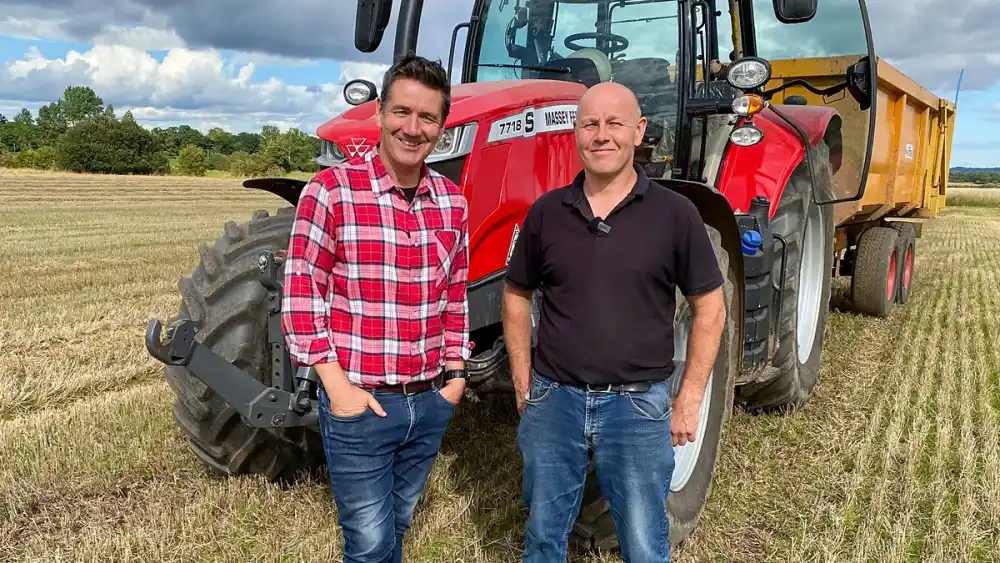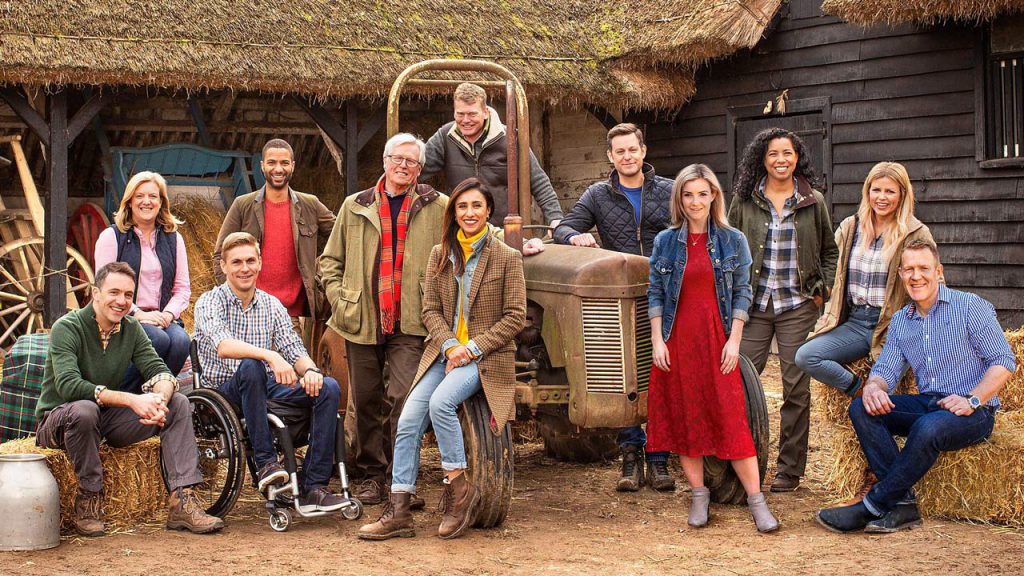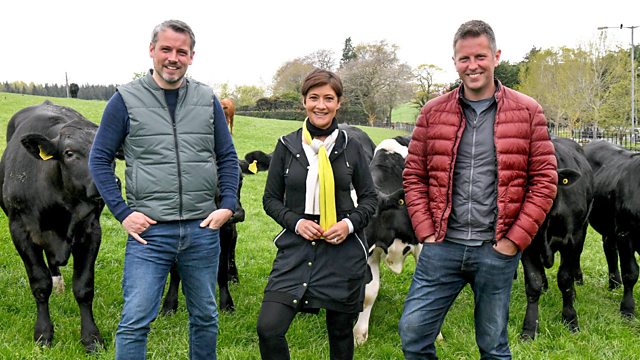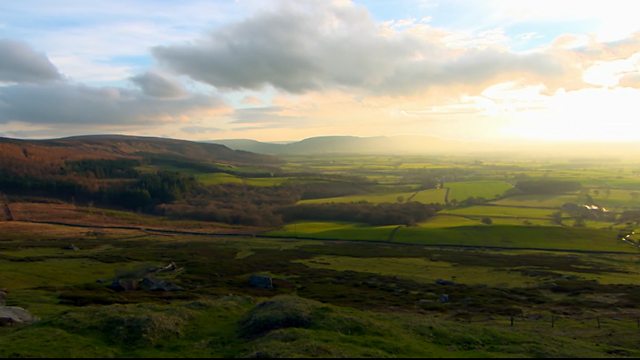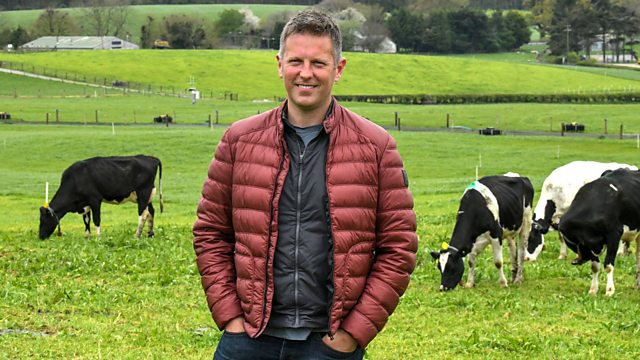Landward episode 14 2023 – Following an unpredictable and tumultuous summer, Dougie ventures into the scenic fields of Angus to uncover the extensive challenges this year’s harvest season has unfurled. Tracing the journey of a crop of spring barley, he meticulously follows each step — from the initial cutting of the golden stalks to the thorough testing processes. The goal? To determine whether the barley meets the exacting standards required for use in the esteemed malting industry. Not far away, near the bustling city of Dundee, Cammy lends a helping hand on a local farm, plunging into the world of blackcurrant harvesting. Here, he learns about the innovative strategies scientists are employing to shield these delicate fruits from the potentially devastating impacts of climate change, ensuring their survival and sustained growth for future generations.
Venturing further, in the rich landscapes of Fife, Rosie embarks on a discovery of her own. She explores the innovative agricultural practice of intercropping, wherein multiple crops are grown together in harmony. This unique method proves advantageous not only for the robustness of the crops but also plays a crucial role in enhancing soil health and bolstering nature’s well-being.
Additionally, the renowned landscape photographer Shahbaz Majeed makes a welcomed return, embarking on a quest to find and showcase the most breathtaking viewers’ photographs, celebrating the mesmerizing beauty captured through diverse lenses across varying landscapes.
Landward episode 14 2023 – Bringing In The Harvest After A Tricky Summer
After an unsettled summer, presenter Dougie Vipond is in Angus finding out how challenging this year’s harvest has been for arable farmers. He follows a crop of spring barley, from cutting through to testing to see if it’s good enough to make the grade for use in malting whisky and beer.
Meanwhile, Cammy Watt is at a farm near Dundee to experience the blackcurrant harvest first-hand. He hears how scientists are future-proofing this fruit against climate change by breeding new varieties adapted to milder winters. In Fife, Rosie Pentz discovers how growing multiple crops together in the same field, known as intercropping, can benefit the health of the soil and nature.
A Tricky Harvest In Angus After A Turbulent Summer
The unusually wet and changeable weather this summer has made it a real stop-start harvest for arable farmers in Angus and other parts of Scotland. At Lochty Farm near Brechin, Dougie meets farmer Ian Thompson who is working hard to bring in his 300 acres of spring barley whenever there’s a dry spell.
Last year’s harvest was one of the easiest Ian can remember, with warm, settled weather allowing an exceptionally early finish. But 2022 has been a very different story due to the erratic conditions. Ian explains that heavy showers in July after a dry spell in May have hampered efforts to get the combine harvesters into the fields.
This has pushed the barley harvest back much later than normal. The rains have also impacted grain quality, which could affect the value and end use of Ian’s barley crop. Good quality malting barley for whisky and beer production is by far the most profitable market.
The Journey Of Malting Barley From Field To Cask
Once cut, Ian’s barley is dried on the farm then taken to a local grain store for testing. For malting, the barley must meet stringent quality criteria so samples are analyzed in a lab. The grains are checked for size, moisture content and critically, their ability to germinate.
If the batch passes these tests, Ian can sell his crop at a premium price for malting. But if it fails at any stage, it must be sold at a heavy discount for animal feed. Understandably, these tests create great anxiety for arable farmers who rely on malting barley for their income.
Barley selected for malting is kept in specialist grain stores up to a year until needed. It’s then sent to a maltings factory where the grains begin to sprout before being stopped by drying with hot air. This controlled germination process produces the sugars needed to make alcohol during brewing and distilling.
So that wee dram begins long before it reaches the cask, with farmers nurturing the perfect barley. Next time you sip a fine Scotch, raise a toast to the efforts of arable farmers like Ian.
Creating Blackcurrants Resilient To Climate Change
Presenter Cammy Watt travels to a farm near Dundee to experience the buzz of the summer blackcurrant harvest. However, fruit grower Fraser Husband explains that traditional blackcurrant varieties rely on cold winters to yield a bountiful crop.
With winters becoming milder due to climate change, the plants no longer receive enough chilling hours below 7°C to reset their internal clocks and coordinate flowering and fruiting. This causes uneven ripening, making picking much trickier.
But there is hope. At the James Hutton Institute in Dundee, scientists have bred an innovative blackcurrant called Ben Lawers that thrives despite the warming winters. It needs far fewer chill hours than conventional types to yield a reliably heavy crop of large, robust berries.
Developed specially for a major juice company, Ben Lawers has rescued blackcurrant growing in Scotland as the climate changes. Trials also show it withstands rain and pests better too. Fraser is hugely relieved he can now guarantee a viable harvest.
The Benefits Of Intercropping For Soil And Wildlife
On his lush agricultural land around Leven in Fife, farmer Doug Christie reveals to Rosie Pentz that growing two crops together in the same field can have real benefits compared to one. This practice is known as intercropping.
His latest experiment combines oats with linseed. The oats provide diversity and support the soil while the linseed is his primary crop. Doug has found some combinations can improve yields as the plants complement each other. Intercropping also increases the diversity of insects drawn to the field which helps naturally control pests.
Research by Dr Alison Karley shows intercrops support more beneficial predators like ladybirds and spiders compared to single crops. These creatures feast on aphids and other crop-damaging bugs. Intercropping was common traditionally before single crops became the norm with industrial farming.
So rather than a mistake, Doug’s field of combo crops harnesses this old technique to improve soil, increase biodiversity and potentially reduce pesticide use. Intercropping could make farming more sustainable for the future.
Conclusion
This episode of Landward highlights how Scotland’s farmers must contend with our increasingly erratic weather and climate thanks to global warming. From changeable weather hampering the harvest to milder winters hitting fruit yields, they need to adapt.
Whether it’s revolutionary blackcurrant varieties tailored to our new climate or rediscovering traditional intercropping, innovation and resilience are vital. Supporting our hard-working farmers to overcome the challenges ahead will ensure the future of Scotland’s fantastic produce.
FAQs – Landward episode 14 2023
Q: Why has harvest been difficult this year in Scotland?
A: Very changeable weather over summer with periods of heavy rain has made it hard to get combines into fields to harvest crops like barley at the optimal time.
Q: What makes barley suitable for malting whisky?
A: Malting barley must meet strict criteria including low protein content, plump grains that germinate well, and the right moisture levels. Specialist strains like Diablo are bred for distilling.
Q: How are blackcurrants being adapted to deal with warmer winters?
A: Scientists are breeding new varieties like Ben Lawers that need fewer chilling hours to flower and fruit reliably, making them resilient to milder winters driven by climate change.
Q: What is intercropping and what are its benefits?
A: Growing two complementary crops together in the same field. It can improve soil health, increase yields, boost biodiversity and potentially reduce pesticide use.
Q: Why was the 2022 harvest in Scotland particularly difficult for farmers?
A: Unsettled weather over summer with heavy showers made it very difficult to get combines out into fields at the ideal time to harvest crops like barley. This reduced grain quality.
